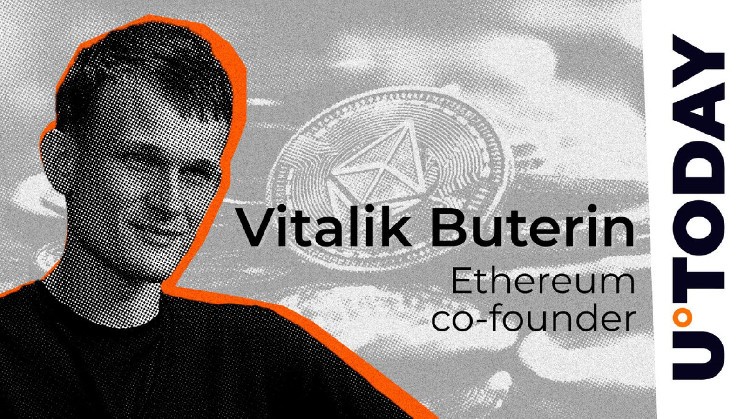Vitalik Buterin Reveals True Ethereum (ETH) Philosophy

An interesting discussion about the underutilization of the crypto market and space emerged recently when Georgios Konstantopoulos of Paradigm suggested that even developers in the crypto space are not fully leveraging the potential of blockchain, and suggested that self-service onboarding, user-signed requests and stablecoins could democratize authentication through decentralized platforms.
Vitalik Buterin, the founder of Ethereum (ETH), entered the discussion by emphasizing Ethereum’s founding philosophy. He likened the Ethereum address to the principle of “text as a universal interface,” positioning the ETH address as a universal tool for authorization across the blockchain ecosystem and calling it the philosophy behind the main alternative blockchain.
Unix philosophy: text as universal interface
Ethereum philosophy: eth address as universal interfaceThanks to zkemail, tlsnotary, anon aadhaar, etc, any form of auth can be converted into an eth address, and then plugged into other tools (eg. multisig, DAO authorizations…)
— vitalik.eth (@VitalikButerin) October 27, 2024
In another interaction, Vitalik Buterin also addressed the growing concerns regarding the sale of the altcoin on behalf of the Ethereum Foundation, as the price of ETH lost another 13% this week, wiping out all of the gains made in the previous week.
Vitalik Buterin on Ethereum (ETH) price
The altcoin’s year-to-date gains total only 8.5%, while its biggest counterparts, Bitcoin (BTC) and Solana (SOL), have returned 59.42% and 72.64%, respectively, prompting critics to question the foundation’s approach of regularly selling ETH instead of betting on it.
Comparing Ethereum to the Nobel Prize Foundation, observers urged the Foundation to use staking revenue for operational costs.

Buterin addressed these concerns by explaining that avoiding an official stance during potential hard forks is a key reason for not staking all holdings. However, he noted that Ethereum is exploring alternatives, including grants that allow recipients to stake ETH independently.
Another approach being considered is to distribute authority and resources across multiple organizations to credibly represent Ethereum, thereby reducing the need for centralized decisions.




 Bitcoin
Bitcoin  Ethereum
Ethereum  Tether
Tether  Dogecoin
Dogecoin  USDC
USDC  Cardano
Cardano  TRON
TRON  Chainlink
Chainlink  Stellar
Stellar  Hedera
Hedera  Bitcoin Cash
Bitcoin Cash  LEO Token
LEO Token  Litecoin
Litecoin  Cronos
Cronos  Ethereum Classic
Ethereum Classic  Monero
Monero  Dai
Dai  Algorand
Algorand  OKB
OKB  Cosmos Hub
Cosmos Hub  Stacks
Stacks  Theta Network
Theta Network  Gate
Gate  Maker
Maker  KuCoin
KuCoin  Tezos
Tezos  IOTA
IOTA  NEO
NEO  Polygon
Polygon  Zcash
Zcash  Synthetix Network
Synthetix Network  Tether Gold
Tether Gold  TrueUSD
TrueUSD  Dash
Dash  Holo
Holo  Zilliqa
Zilliqa  0x Protocol
0x Protocol  Enjin Coin
Enjin Coin  Qtum
Qtum  Siacoin
Siacoin  Basic Attention
Basic Attention  Bitcoin Gold
Bitcoin Gold  Ravencoin
Ravencoin  Decred
Decred  NEM
NEM  Ontology
Ontology  DigiByte
DigiByte  Nano
Nano  Hive
Hive  Status
Status  Huobi
Huobi  Lisk
Lisk  Waves
Waves  Steem
Steem  Numeraire
Numeraire  Pax Dollar
Pax Dollar  BUSD
BUSD  OMG Network
OMG Network  Ren
Ren  Bitcoin Diamond
Bitcoin Diamond  Bytom
Bytom